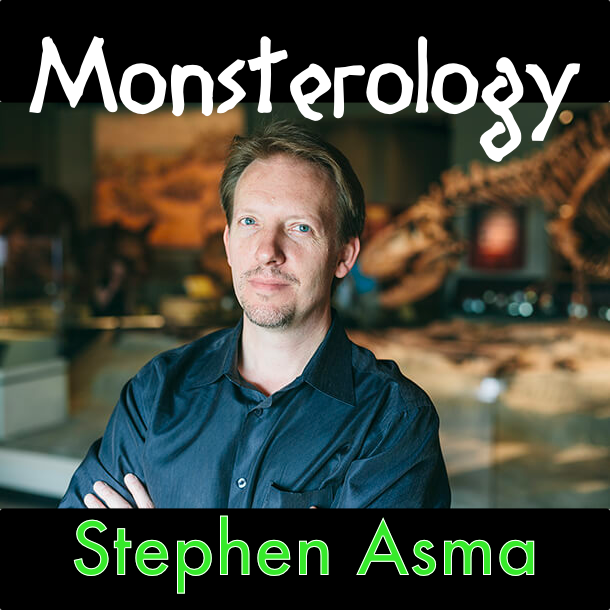
239 – Monsterology
Guest: Stephen Asma
Hosted by Blake Smith
Notable Quotes
“It’s like the old blind men trying to identify an elephant by touching the different parts. You can’t really get a gestalt understanding unless you have these multidisciplinary approaches, and I’m getting to that for everything. It feels like you can’t truly understand anything from a single approach.”
– Blake Smith
“There’s a service to be done in looking at monsters—which you guys do—and it’s very important work because there’s tremendous gullibility in the culture, and claims need to be evaluated for truth…as monsterologists, I think it’s on us to try to figure out, why do dragons seem so pervasive? And are there sort of image schemas that cultures keep repeating over and over again? And why is that, are there evolutionary reasons for that?”
– Stephen Asma
“I’m not the first person to notice this, but I think once you notice it, you can’t help but see it everywhere you look. All of those ancient Greek monsters, and even before that, the Egyptian monsters, and even before that, the Babylonian monster, let’s say of Gilgamesh, these are all hybrids of some kind that you take two animals, and you mash them together in the imagination, and you have a creature that’s extremely activating or arousing for our cognitive attention.”
– Stephen Asma
Episode Summary
When we think about monsters, the number one reaction most people will have is fear. Why is that and where does it come from? How do our brains process the concept of monsters, our gut reactions to them, and about where we stand with all of that? In this episode of MonsterTalk, Blake sits down with author, professor, and artist, Stephen Asma to delve into how monsters evolved with us as humans culturally, how our imaginations play a role in it, and how our minds wrap themselves around our beliefs—among many other things.
Relevant Links
Stephen Asma
Website | Monsterology Channel
Some Published Works:
Monsters on the Brain: An Evolutionary Epistemology of Horror by Stephen Asma
Why Are So Many Monsters Hybrids? By Stephen Asma
On Monsters: An Unnatural History of Our Worst Fears
The Emotional Mind: The Affective Roots of Culture and Cognition
Stuffed Animals and Pickled Heads: The Culture and Evolution of Natural History Museums
Other Relevant Link:
John Robbins (Illustrator) Obituary
In this Episode of MonsterTalk
- Introductions: Stephen Asma
- Monsterology potentially as a recognized field?
- The tendency for hyper-rationality and attempting to understand phenomena
- The Evolution of Imagination
- Language and before language
- Predictive modeling and Hebb’s Law
- Monsters on the Brain
- When monsters evoke awe
- Why are So Many Monsters Hybrids?
- The draw to Buddhism
- How Tibetan Buddhism perceives Yeti
- Phenomenology and animism
- Stephen Asma’s Monsterology Channel
- What to look out for next with Stephen Asma
Can’t get enough of monsters?
If you’ve enjoyed this episode and want to listen to more from MonsterTalk Radio, click here!
Want to talk about a monster we haven’t talked about before? Send us an email!
Catch MonsterTalk Radio on All Your Favorite Podcasting Sites
Apple Podcasts | Spotify | Stitcher | TuneIn
Follow MonsterTalk Radio on Facebook | Twitter | YouTube
Support
Love the show? Consider supporting MonsterTalk Radio on Patreon!
Interested in Advertising with us? Contact sales@advertisecast.com!